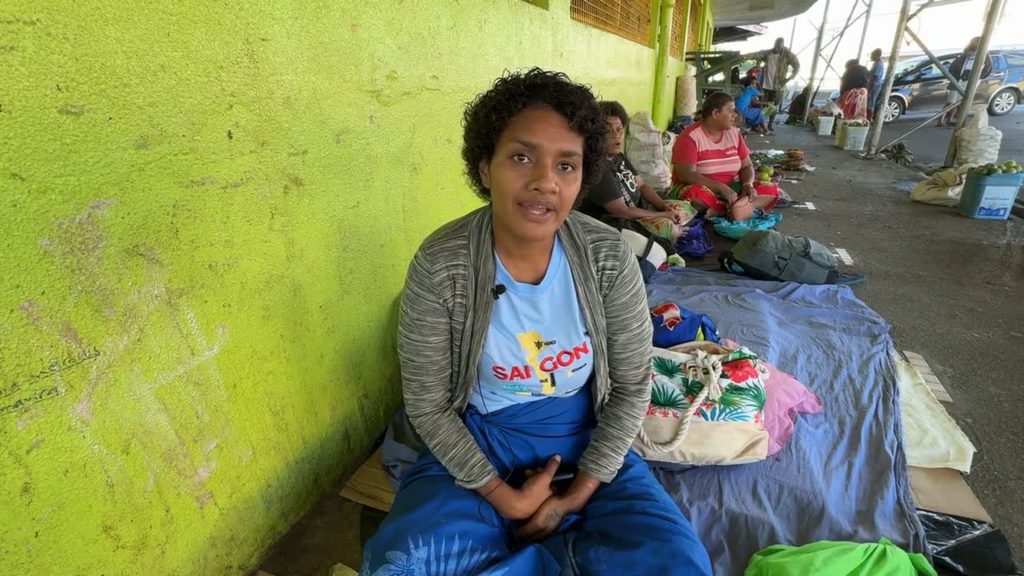At 3am, while most of Fiji still sleeps, Vani Sulua and her husband begin their trip to the market.
In the darkness, they wade through the cold Wainimala River, lifting sacks of root crops and vegetables above the water to keep them dry. At the riverbank, they try to stay warm as they wait for the carrier that will take them into town, a routine that has become their only way to earn a living.
From Nasivikoso Village in Magodro, Ba, Vani, 31, now lives in Waibasaga, Wainimala, in Naitasiri with her husband and two children. Each market day starts early, and the journey is never easy.
“I left the village at 3am to come to town and sell in the market,” she said.
“One of the key difficulties for us in the village is having to cross the river in the early hours of the morning to come and wait for transport.”
For Vani and others in her area, the crossing is the hardest part. The river can be deep after rain, and without a bridge, there is always a risk. But it’s a risk they take often because it is the only way to earn.
“When we get to the market in the early hours, we have a few hours to sell until 9am when the area we sell from reverts to being the car park. So we have to find other places around the market to sell until 3 or 4pm, then we can come back outside.”
The long hours eventually take their toll. Many farmers try to sell as quickly as they can, often in bulk, to avoid returning home with unsold produce.
Vani said they usually tried to sell off their produce wholesale to earn as much as they could and avoid their produce rotting and being thrown away. She has been doing this for years.
“I’ve been married 10 years and living in Waibasaga, and I have witnessed and experienced how difficult it is for villagers in those parts just to cross the river at early hours of the morning just to secure a ride into town. There’s a lot of challenges with transportation without a bridge. There have been drownings, deaths, but there is no other way to earn money.”
For many years, people living along the Wainimala River in Naitasiri have asked for a bridge. The lack of one has meant travel is often delayed or cut off during floods.
Farmers, schoolchildren and patients needing medical help all face the same problem when the river rises.
While rural development projects have improved access roads, the lack of a bridge continues to affect the area, adding to transport costs and limiting how much farmers can bring to town.
Each day at the market is a test of endurance for Vani. She packs her dalo, cassava and vegetables, travels for hours, then waits for buyers under the sun or rain at the Suva market. If there’s a lot of unsold produce, it means spending a night in the marketplace.
It also means her children don’t get to see their mother at home. On good days, Vani gathers what little produce may be left and prepares to make the same arduous journey back home, with much-needed groceries and a few treats for her kids.
“The reason we’re here every day is to support our families, to put our children through school, and to contribute to village and church fund-raising needs.”



